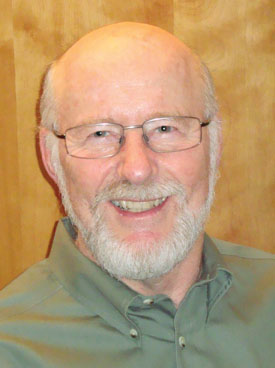Nort Salz, president and co-founder of Deep CustomerConnections, believes the great insight the world receivedfrom psychology over the last  century is that we are feeling beings who are helped bylogic; not logical beings helped by feelings.
century is that we are feeling beings who are helped bylogic; not logical beings helped by feelings.
Salz maintains this insight has major implications for theindependent agency distribution channel in the insurance industry.One such implication is that while agents need to operate at atransactional level, they don't just want the coolest technology;they want an underwriter to come by and talk with them.
|“I see so many comments from agents that deal with havingsomeone from the carrier stopping by to talk so they can write somebusiness,” he says. “it's really a business relationship they arelooking for. To be effective, it has to have some sort of personalcomponent to it.”
|Technology is ubiquitous, but Salz typically finds that whenagencies are asked what factors they rate highest in importancewhen it comes to working with carriers, technology is usuallyranked fourth or fifth in importance among agents.
|“They don't think of it from the technology perspective as muchas from an application perspective,” he says. “Is this going tohelp me write business?”
|In some ways, managing technology and relationships takesdifferent mindsets, according to Salz.
|“You get the neatest technology sometimes from techy types thataren't always the ones good at building relationships,” he says.“What I think needs to happen is the tech people need to spend timesitting in the agencies and doing some business. It's not just theunderwriters that need to build relationships with agents, thetechnology people and the claims people need to keep dipping theirtoes into that agent water.”
|Ease of Business
|Salz recently took part in a panel discussion on how carrierscan make it easier for agents to write business. The panelists camefrom three different perspectives, but all had a common message: Toreally make progress on ease of doing business and to come at itfrom a strategic direction, carriers need to focus on threethings.
|1) The agency/carrier relationshipwill only work if there is strong, sustainable leadership from thetop
|2) Ease of doing business is not aproject, it's a culture. Carriers need to breathe it into theentire organization and everybody, in some way or another, has aneffect on that.
|3) You have to find a way toreinforce ease of doing business so people within the organizationget feedback to support what they're doing.
|One reason the panelists with Salz were emphasizing direct,sustained leadership is because many carriers get started in thedirection of ease of doing business, only to find it is hard work,so they return their focus to transactions.
|“Carriers have to make their people understand that it is astrategy, not a tactic,” says Salz. “That requires the president ofthe company getting up and talking about it all the time.”
|Agents are looking for effective workingrelationships with carriers, explains Salz. What that looks likedepends on the carrier, though.
|“What do you already have in place and in particular what is theculture you currently have?” asks Salz. “For some of my clients,it's clear that ease of doing business is something that's builtinto the DNA of everyone in the organization, but if I also try tothink about more operational terms, I think the first piece of aneffective relationship that agents are looking for is support inwriting business. Agents are sales people. They are out theretrying to sell. They want support in writing business.”
|Such support varies among carriers depending upon how they enterthe marketplace and where they already are, points out Salz.
|“In fundamental terms it starts with carriers having a clearappetite for risk,” he says. “That doesn't mean agents want achecklist of what business the carriers are interested in writing.It's more of a common understanding of what the carrier's businessis really about. If the agents 'get it' they will send the rightbusiness to the carrier, which will make both sides more efficient.It also means that the relationship between the carrier and theagent will be stronger.”
|Agency Skills
|Salz believes the biggest challenge agencies face withtechnology is once they get to a certain point, the technology hasalready moved on.
|“It's a moving target,” he says.
|It's difficult to compare an insurance underwriting experiencewith retail purchases online, but shoppers don't care what acarrier's problems are.
|“The competition is tough and carriers understand that, but insome ways it comes back to the question of culture,” says Salz.“Changes are easy to understand at a cognitive level, but that'snot where insurance companies come from. A lot of companies solve atechnology question and move to the next, but they don't think of astrategy in the larger, system sense. There's no way you can getthere if you're always thinking of the next cool tool. It comesback to strategy and leadership. It's hard being sustained andfocused and not looking at gimmicks.”
|The culture issue is a combination of factors, according toSalz. In some ways it seems transactional, but it's also human.
|“Carriers need to pay attention to their underwriting process,”he says. “They need to look at it from the perspective of whetherthere are steps that can be eliminated. Underwriters need to notonly understand how to assess a risk, they need to be greatlisteners and know how to empathize with agents. As the Moody Bluessang, it's a question of balance.”
Want to continue reading?
Become a Free PropertyCasualty360 Digital Reader
Your access to unlimited PropertyCasualty360 content isn’t changing.
Once you are an ALM digital member, you’ll receive:
- All PropertyCasualty360.com news coverage, best practices, and in-depth analysis.
- Educational webcasts, resources from industry leaders, and informative newsletters.
- Other award-winning websites including BenefitsPRO.com and ThinkAdvisor.com.
Already have an account? Sign In
© 2024 ALM Global, LLC, All Rights Reserved. Request academic re-use from www.copyright.com. All other uses, submit a request to [email protected]. For more information visit Asset & Logo Licensing.








